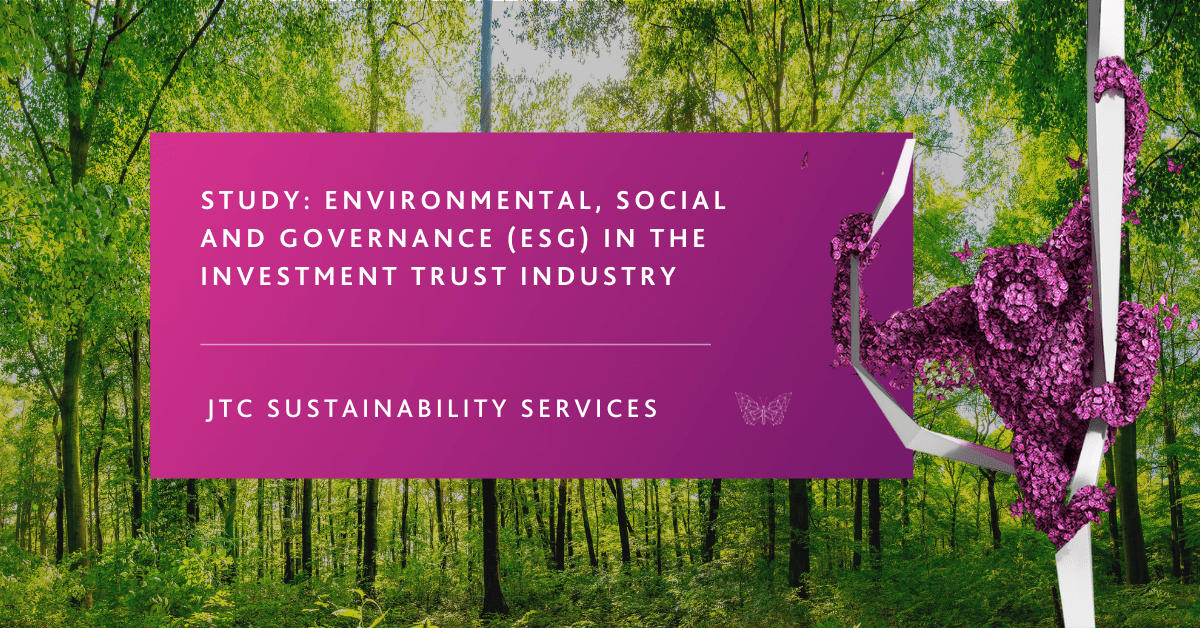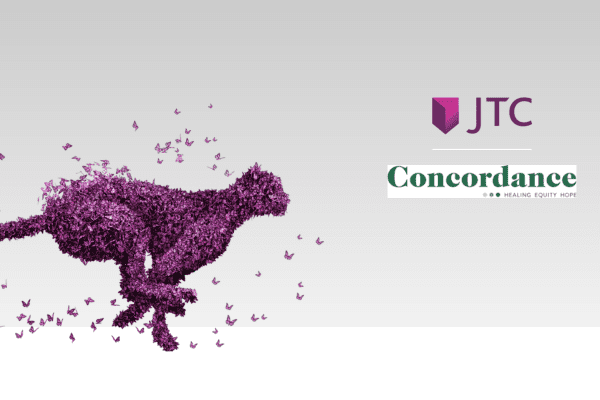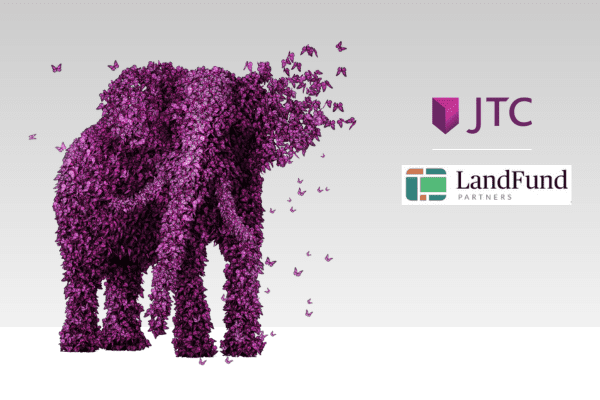Sustainability and Impact Services
Our services span advisory, regulatory compliance, outsourced reporting and our virtual Chief Sustainability Officer (vCSO) offering. These services are supported by market-leading technology, and we are proud to partner with Novata as our preferred tech-enabled reporting platform. At JTC, we believe that responsible business practices help to create long-term value. Our sustainability and impact services are designed to support your business in assessing, adopting and integrating a wide range of sustainability principles effectively. Whether you need guidance on regulatory frameworks, implementation of sustainability goals, or support with governance structures, our global team combines deep expertise with practical strategies tailored to your objectives. Let us help you confidently achieve your sustainability ambitions.
Trusted by Leading Global Financial Institutions

Managing Sustainability and Impact Complexities with Confidence
Your partner for sustainable growth and governance.
Find Your Local Team
Meet Your JTC Experts
JTC’s Sustainability & Impact team combines expertise with practical experience, helping businesses thrive responsibly.
Frequently Asked Questions
Our services are offered under four interrelated pillars: advisory, regulatory compliance, outsourced reporting and virtual Chief Sustainability Officer (vCSO). We have teams based in the UK, Europe and the USA.
We can help you understand which sustainability frameworks and regulations your organisation is subject to, both mandatory and voluntary, and work with you to devise comprehensive disclosure solutions. We have expertise in sustainability compliance for fund and corporate structures across a range of asset classes.
Yes, we specialise in designing governance models that promote transparency, accountability, and long-term success.
JTC provides risk assessments, sustainability scoring, and compliance monitoring to help funds meet regulatory expectations and investor requirements.
Insights from Your JTC Sustainability and Impact Experts
Stay informed with the latest updates and insights from JTC on sustainability trends, regulatory changes, and innovative practices for responsible business growth.
Insights from Your JTC Sustainability and Impact Experts
Stay informed with the latest updates and insights from JTC on sustainability trends, regulatory changes, and innovative practices for responsible business growth.
Insights from Your JTC Sustainability and Impact Experts
Stay informed with the latest updates and insights from JTC on sustainability trends, regulatory changes, and innovative practices for responsible business growth.
Insights from Your JTC Sustainability and Impact Experts
Stay informed with the latest updates and insights from JTC on sustainability trends, regulatory changes, and innovative practices for responsible business growth.
Meet Your JTC Experts
JTC’s Sustainability & Impact team combines expertise with practical experience, helping businesses thrive responsibly.
Insights from Your JTC Sustainability and Impact Experts
Stay informed with the latest updates and insights from JTC on sustainability trends, regulatory changes, and innovative practices for responsible business growth.
Insights from Your JTC Sustainability and Impact Experts
Stay informed with the latest updates and insights from JTC on sustainability trends, regulatory changes, and innovative practices for responsible business growth.
Insights from Your JTC Sustainability and Impact Experts
Stay informed with the latest updates and insights from JTC on sustainability trends, regulatory changes, and innovative practices for responsible business growth.
Insights from Your JTC Sustainability and Impact Experts
Stay informed with the latest updates and insights from JTC on sustainability trends, regulatory changes, and innovative practices for responsible business growth.
Insights from Your JTC Sustainability and Impact Experts
Stay informed with the latest updates and insights from JTC on sustainability trends, regulatory changes, and innovative practices for responsible business growth.
Insights from Your JTC Sustainability and Impact Experts
Stay informed with the latest updates and insights from JTC on sustainability trends, regulatory changes, and innovative practices for responsible business growth.
Insights from Your JTC Sustainability and Impact Experts
Stay informed with the latest updates and insights from JTC on sustainability trends, regulatory changes, and innovative practices for responsible business growth.
Insights from Your JTC Sustainability and Impact Experts
Stay informed with the latest updates and insights from JTC on sustainability trends, regulatory changes, and innovative practices for responsible business growth.
Meet Your JTC Experts
JTC’s Sustainability & Impact team combines expertise with practical experience, helping businesses thrive responsibly.
Insights from Your JTC Sustainability and Impact Experts
Stay informed with the latest updates and insights from JTC on sustainability trends, regulatory changes, and innovative practices for responsible business growth.
Meet Your JTC Experts
JTC’s Sustainability & Impact team combines expertise with practical experience, helping businesses thrive responsibly.
Insights from Your JTC Sustainability and Impact Experts
Stay informed with the latest updates and insights from JTC on sustainability trends, regulatory changes, and innovative practices for responsible business growth.
Insights from Your JTC Sustainability and Impact Experts
Stay informed with the latest updates and insights from JTC on sustainability trends, regulatory changes, and innovative practices for responsible business growth.
Insights from Your JTC Sustainability and Impact Experts
Stay informed with the latest updates and insights from JTC on sustainability trends, regulatory changes, and innovative practices for responsible business growth.
Insights from Your JTC Sustainability and Impact Experts
Stay informed with the latest updates and insights from JTC on sustainability trends, regulatory changes, and innovative practices for responsible business growth.
Insights from Your JTC Sustainability and Impact Experts
Stay informed with the latest updates and insights from JTC on sustainability trends, regulatory changes, and innovative practices for responsible business growth.
Insights from Your JTC Sustainability and Impact Experts
Stay informed with the latest updates and insights from JTC on sustainability trends, regulatory changes, and innovative practices for responsible business growth.
Insights from Your JTC Sustainability and Impact Experts
Stay informed with the latest updates and insights from JTC on sustainability trends, regulatory changes, and innovative practices for responsible business growth.
Insights from Your JTC Sustainability and Impact Experts
Stay informed with the latest updates and insights from JTC on sustainability trends, regulatory changes, and innovative practices for responsible business growth.
Insights from Your JTC Sustainability and Impact Experts
Stay informed with the latest updates and insights from JTC on sustainability trends, regulatory changes, and innovative practices for responsible business growth.
Insights from Your JTC Sustainability and Impact Experts
Stay informed with the latest updates and insights from JTC on sustainability trends, regulatory changes, and innovative practices for responsible business growth.
Insights from Your JTC Sustainability and Impact Experts
Stay informed with the latest updates and insights from JTC on sustainability trends, regulatory changes, and innovative practices for responsible business growth.
Insights from Your JTC Sustainability and Impact Experts
Stay informed with the latest updates and insights from JTC on sustainability trends, regulatory changes, and innovative practices for responsible business growth.
Let’s Bring Your Vision to Life
From 2,300 employee owners to 14,000+ clients, our journey is marked by stability and success.






















































